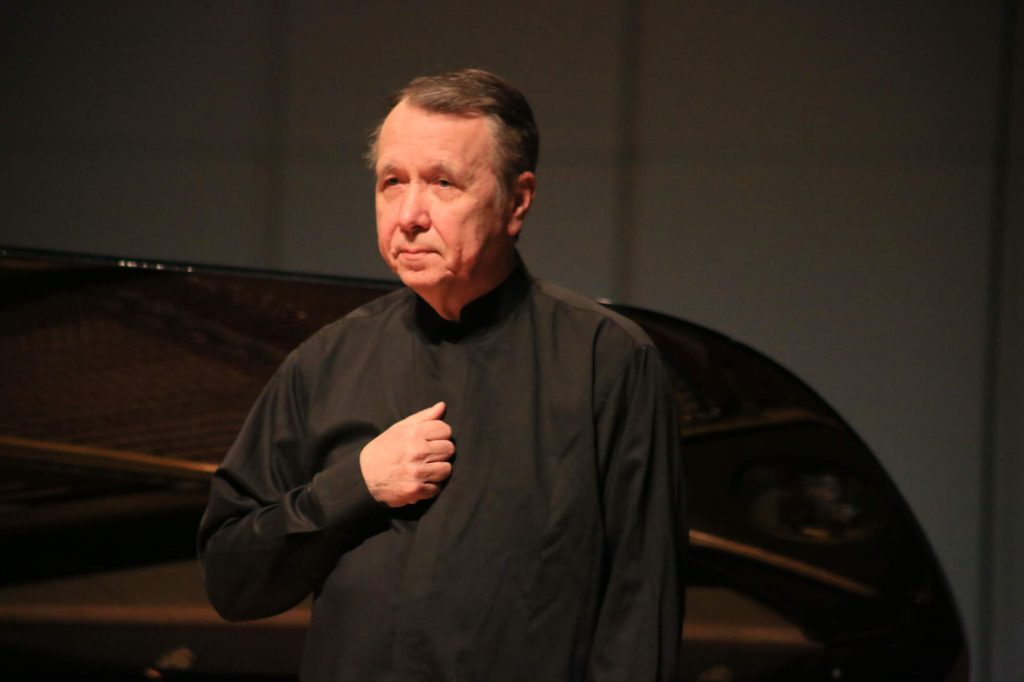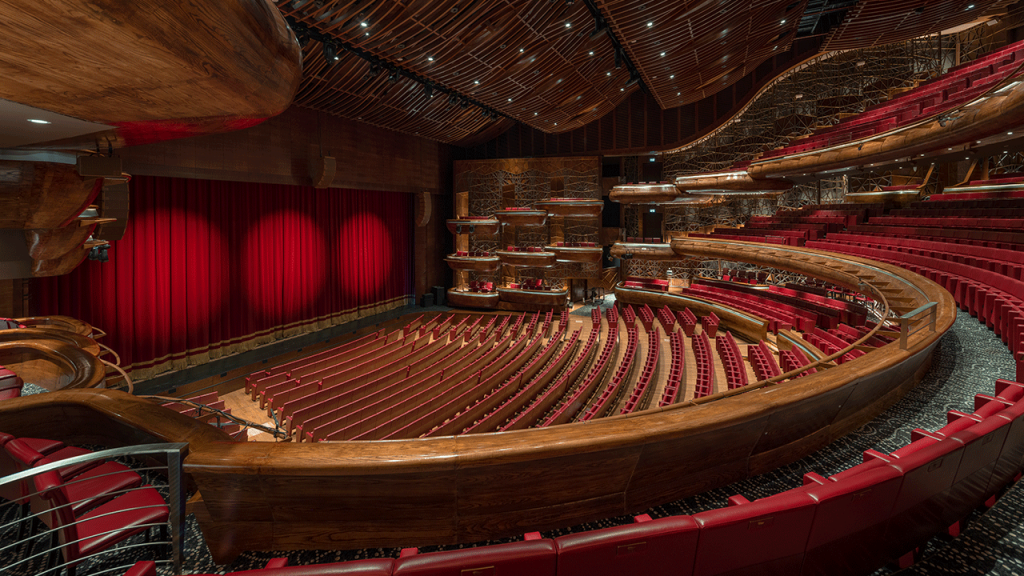The evening of April 9, 2025, will not be remembered for its desert silence. Rather, it will echo in the memory of those present at Dubai Opera, where Mikhail Pletnev, the enigmatic maestro of Russian musical lineage, is set to perform with the Tokyo Philharmonic Orchestra. This isn’t just another date on a cultural calendar. In a city intoxicated by spectacle, it is the subtle contradictions of a man like Pletnev—virtuoso pianist, seasoned conductor, ever-unpredictable interpreter—that draw attention away from the skyline and into the depths of interpretation.
THE CITY THAT MIRRORS THE MAN
He arrives not alone, and not unarmed. With Andrea Battistoni wielding the baton, the Tokyo Philharmonic—an orchestra not known for bombast but for deliberate elegance—prepares to unfold Beethoven’s Symphony No. 5 in C minor. This is not fresh territory for any of them, but that’s hardly the point. The piece has been played, dissected, and adored, yet its fate tonight lies in new hands, filtered through the prism of Pletnev’s introspection and the orchestra’s tightly-honed articulation.
WHEN LITERATURE MEETS SONIC IMAGINATION
Before that, though, something more elusive will unfold. Alexey Shor’s “From My Bookshelf,” a suite for piano and orchestra co-shaped by Pletnev himself, will open the evening. The piece’s structure defies easy categorization. While it bears the decorative elegance of postmodern romanticism, under Pletnev’s command, it may unravel with undertones less nostalgic than spectral. Each movement draws inspiration from classical literature, but don’t expect a tidy summary. Instead, anticipate reinterpretations steeped in pauses, shadows, and silences that suggest more than they state. The line between performer and composer begins to blur—how much of what we hear belongs to Shor, and how much to Pletnev, becomes increasingly unclear. This ambiguity is not only tolerated but cultivated.

A DIALOGUE BETWEEN OPPOSITES, NOT A DUET
There is something strangely appropriate about the event taking place in Dubai. The city, ever poised between authenticity and illusion, steel and sand, luxury and silence, mirrors Pletnev’s artistry. He neither demands attention nor performs humility. Like the score he plays, he resists simplification. Even his reputation remains fragmented: part child prodigy, part National Artist of Russia, part occasional recluse. And yet, when his fingers settle into the keys, the distractions of his biography begin to recede, replaced by a sensation more immediate—urgency without haste, clarity without harshness, sentiment without sentimentality.
It’s worth noting the absence of any linear logic in the evening’s programming. There is no connective tissue between the 21st-century orchestral suite and Beethoven’s classic. And yet, this is precisely why the event intrigues. While some may find the transition jarring, others will sense a hidden coherence—an emotional undercurrent that flows not from the compositions themselves, but from their rendering. Through this dissonance, something authentic is born, even if it defies articulation. Moreover, the audience, comprised of aficionados, newcomers, skeptics, and loyalists alike, will be left suspended in that tension—between eras, between styles, and between certainty and interpretation.
THE FRICTION THAT MAKES THE SOUND BREATHE
Furthermore, one cannot ignore the peculiar synergy between conductor and soloist. Battistoni, bold and theatrical, is not the type to shrink in Pletnev’s shadow. Yet it’s in this friction that beauty lies. Where one might emphasize rhythmic assertion, the other may prefer spatial delay. The orchestra, caught between two commanding forces, becomes more than an ensemble—it transforms into a site of negotiation, of dynamic compromise. And surprisingly often, it is precisely this unpredictability that delivers the most breathtaking results.
Meanwhile, Dubai Opera itself becomes an active participant. Not merely a venue, it exerts influence through its architecture and acoustic precision. From certain seats, the piano’s resonance appears to hang midair before dissolving into orchestral warmth. In others, the woodwinds whisper with a clarity that feels intimate, almost confessional. Every position in the hall offers a different relationship to the music—there is no single, definitive experience. This multiplicity is a quiet triumph.

WHAT HAPPENS WHEN TIME STOPS MAKING SENSE
As the evening unfolds, time may cease to function as expected. Minutes stretch; silences expand. And though Beethoven’s Fifth carries that familiar motif—da-da-da-DA—it may arrive not with fury, but with solemnity, or doubt, or even detachment. Much depends on the audience’s willingness to let go of expectations. Even the most iconic symphony, after all, is not immune to transformation. In the hands of these artists, the familiar becomes unfamiliar again, and from that unfamiliarity emerges a fragile, fleeting kind of truth.
Tickets for this particular night are being sold exclusively through Dubai Opera’s official platform, yet acquiring one may not be a matter of simple purchase. With seats disappearing faster than announcements can keep up, those eager to witness the moment would be wise not to hesitate. General seating options remain, though some premium categories are already reported as fully booked. No physical tickets will be sold at the door—entry is strictly managed via digital reservation, with age restrictions enforced. Attendees under six are not permitted, and those above must present valid entry credentials.
There will be no obvious encore, no applause that captures what truly took place. Just a murmur, perhaps, as people exit—confused, fulfilled, or both. Some will discuss the interpretation; others will say nothing. And maybe that’s best. Because if an evening like this can be fully described, it may not have been fully experienced. The music will remain in the air a little longer than expected—then disappear, leaving behind the echo of a thought.


 then "Add to Home Screen"
then "Add to Home Screen"